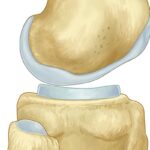





Welcome back to our exploration of the captivating power of collagen! In Part 1, we delved into the significance of collagen and its crucial role in maintaining tissue integrity and supporting joint function.
In Part 2, we will unravel the secrets of collagen’s transformative power in skin health. Get ready to discover how collagen enhances skin elasticity, promotes a youthful complexion, and reduces the appearance of wrinkles. Let’s dive in!
Collagen and Skin Elasticity
One of the key factors that contribute to youthful and supple skin is its elasticity. Collagen plays a vital role in maintaining skin elasticity, which is the ability of the skin to stretch and bounce back to its original shape. As we age, collagen production naturally declines, leading to a loss of skin elasticity and the formation of wrinkles.
Collagen fibers in the dermis, the middle layer of the skin, provide structural support and resilience. They form a network that helps the skin retain its firmness and flexibility. However, as collagen levels decrease over time, this network weakens, causing the skin to become less elastic and prone to sagging.
By replenishing and supporting collagen levels, we can enhance skin elasticity and promote a more youthful appearance. Several methods can help boost collagen production and maintain skin elasticity:
Topical Collagen-Boosting Treatments
Skincare products that contain ingredients known to stimulate collagen synthesis, such as retinol, peptides, and vitamin C, can help improve skin elasticity and reduce the appearance of fine lines and wrinkles.
Microneedling
This minimally invasive procedure involves creating tiny microchannels in the skin using a device with fine needles. It stimulates collagen production and enhances the absorption of collagen-boosting products, promoting skin elasticity and rejuvenation.
Laser Therapy
Certain laser treatments target the deeper layers of the skin, stimulating collagen production. These treatments can improve skin elasticity, reduce wrinkles, and promote a more youthful complexion.
Collagen and a Youthful Complexion
A radiant and youthful complexion is often associated with healthy and well-nourished skin. Collagen plays a significant role in achieving and maintaining a youthful appearance by contributing to skin hydration, texture, and overall tone.
Hydration
Collagen helps maintain the skin’s moisture levels, preventing dryness and promoting a hydrated and plump complexion. Adequate hydration is crucial for a smooth and youthful-looking skin surface.
Texture
Collagen contributes to the smoothness and softness of the skin’s surface. When collagen levels are optimal, the skin appears firm and even, with a refined texture. However, collagen depletion can lead to roughness and an uneven skin tone.
Tone
Collagen also plays a role in maintaining an even skin tone and reducing the visibility of blemishes, such as hyperpigmentation and acne scars. It supports the regeneration of new skin cells, leading to a more radiant and balanced complexion.
To enhance your skin’s youthful complexion, consider the following practices:
Moisturization
Use moisturizers and serums that contain hydrating ingredients like hyaluronic acid, which can help retain moisture and promote a plump appearance.
Sun Protection
Protecting your skin from harmful UV rays is crucial in preventing collagen breakdown. Apply a broad-spectrum sunscreen with a high SPF daily, and limit sun exposure during peak hours.
Healthy Lifestyle
Adopt a balanced diet rich in fruits, vegetables, lean proteins, and healthy fats. Nutrients like vitamin C, zinc, and omega-3 fatty acids are essential for collagen synthesis and overall skin health.
Collagen and Wrinkle Reduction
Wrinkles are a natural part of the aging process, but collagen depletion can accelerate their formation. Collagen provides the skin with structure and support, helping to smooth out wrinkles and fine lines. When collagen levels decline, the skin becomes less firm and resilient, leading to the formation of wrinkles.
To combat wrinkles and reduce their appearance, it’s important to focus on collagen maintenance and stimulation. Here are some strategies that can help:
Collagen-Boosting Ingredients
Incorporate skincare products that contain ingredients known to stimulate collagen production, such as retinoids, peptides, and growth factors. These ingredients can help improve skin texture, reduce wrinkles, and promote collagen synthesis.
Facial Massage
Regular facial massages can help stimulate blood circulation and promote collagen production. Gentle massage techniques, combined with a nourishing facial oil or serum, can improve skin elasticity and reduce the appearance of wrinkles.
Nutritional Support
A balanced diet rich in collagen-supporting nutrients can contribute to healthy collagen levels. Foods such as bone broth, fish, berries, citrus fruits, leafy greens, and nuts contain essential vitamins, minerals, and antioxidants that support collagen synthesis and skin health.
Non-Invasive Procedures
Various non-invasive cosmetic procedures can help boost collagen production and reduce wrinkles. These may include radiofrequency treatments, ultrasound therapy, and dermal fillers. Consult with a qualified dermatologist or aesthetician to explore suitable options for your specific needs.
Lifestyle Factors
Certain lifestyle choices can affect collagen health and contribute to wrinkle formation. Avoiding smoking and excessive alcohol consumption can help minimize collagen breakdown and maintain skin elasticity. Additionally, managing stress levels and getting adequate sleep can support overall skin health and reduce the appearance of wrinkles.
Remember, while collagen plays a significant role in wrinkle reduction, it’s important to have realistic expectations. Wrinkles are a natural part of the aging process, and it’s impossible to completely eliminate them.
However, by adopting collagen-boosting practices and a comprehensive skincare routine, you can enhance skin texture, promote a more youthful appearance, and reduce the visibility of wrinkles.
Consult with a qualified dermatologist or aesthetician to explore suitable options for your specific needs.
Conclusion
In this part of our article, we explored the crucial role of collagen in skin health. We discovered how collagen enhances skin elasticity, promotes a youthful complexion, and reduces the appearance of wrinkles. By understanding the significance of collagen and implementing collagen-boosting strategies, we can support our skin’s vitality and maintain a youthful appearance.
In Part 3, we will continue our captivating journey by delving into the Impact of Collagen on Joint Health. We will uncover the role of collagen in maintaining joint flexibility, supporting cartilage health, and promoting overall joint well-being. Brace yourself for an enlightening exploration of collagen’s power in the realm of joint health. Stay tuned for Part 3 of our article, as we unravel the remarkable connection between collagen and strong, resilient joints.
© 2023 Tanushree Jain
